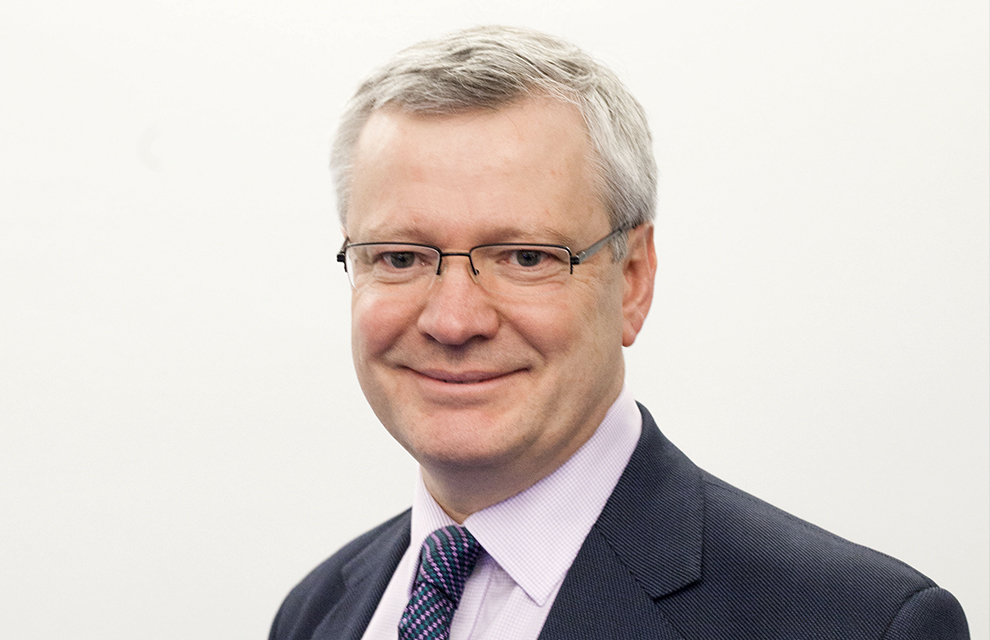Airmic
Airmic CEO John Ludlow discusses COVID-19 pandemic effects, what the association has been working on and what attendees can expect from this year’s virtual conference
Like most events due to be held this year, Airmic’s annual conference is another that was cancelled due to the ongoing pandemic. However, the UK association for risk and insurance professionals will play host to Airmic Fest, a virtual event on 22 to 24 September.
John Ludlow, CEO of Airmic, discusses COVID-19 pandemic effects, what Airmic has been working on and what attendees can expect from the association’s first virtual conference.
What has Airmic been working on so far this year? How have priorities changed due to the pandemic?
In a time of crisis, organisations should put the feelings of their stakeholders first and try not to be selfish in their approach to business. This has worked well for Airmic. Our team has worked tirelessly and shown great commitment and flexibility.
As the pandemic unfolded, we reviewed our purpose, objectives and the changing needs of our stakeholders for this period of uncertainty. It has been necessary to pivot our business model to digital formats to support our members during a very challenging time and this has boosted both member engagement and numbers.
We have tried to be thoughtful and creative in fulfilling the needs of our partners who sponsor us. We have also tried to be as reasonable as we can in settling redundant contracts with suppliers and customers.
Above all, we have been communicating, listening and embracing the accelerating trends all around us. It is important that we do not rush into making strategically significant decisions before we are ready.
To ensure this is the case, we’re taking the fourth quarter to closely examine and consult on our options for the year ahead.
What have been this year’s biggest challenges for Airmic and the captive insurance industry?
It has been a year of great opportunity for captives, and we predict the formation of captives is set to increase. It is important not to forget the ultimate beneficiaries of a captive is its parent — the insurance buyer. Harsh insurance market conditions have produced a lot of challenges for our members in the market, particularly when insuring risks such as directors’ and officers’ liability (D&O).
While there are great opportunities for captives to take on more risk and write new lines of insurance, this needs to be done responsibly and involves learning and innovation to take on new lines of business. Any such decisions should be based on sound actuarial and risk analysis. Captives need to define their own risk appetite before taking on new business to ensure it makes sound commercial sense. Captives, particularly those within struggling sectors, will also face rating challenges and a tough market for loss portfolio transfers (LTPs) and retrocessional coverage.
The pandemic has also presented challenges for captives in relation to fulfilling board meetings in their domicile where this is required. We have seen most international captive jurisdictions issue guidelines concerning virtual board meetings, but captive owners must ensure they stay in line with HM Revenue and Customs (HMRC) or other tax authorities’ own guidelines with regards to economic substance.
Airmic called on the insurance market to choose a more responsible position on the COVID-19 pandemic due to the risk of long-term damage to trust and reputation and the loss of customers. What kind of response have you seen the insurance sector take and has it been enough?
I see signs that insurers are preparing to shift their position to try to limit the reputational damage from the Financial Conduct Authority (FCA) case. However, I do not see any great movement on the core issues from the perspective of risk managers. It is a question of trust: the industry is built on trust; this takes years to build, and it can be damaged quickly but take years to repair. I hope the industry will see how short-sighted some of their stances are before the market is more permanently damaged, particularly as the insurance industry itself is ripe for disruption, including through increasing use of captives.
What can attendees expect from Airmic Fest?
We’re excited about Airmic Fest because we believe it represents a new and innovative conference experience. Digital networking through big conversations are a great way of debating some of the issues out there. People will get out of the experience what they invest in a digital event.
One lasting benefit of Airmic Fest being made available via the web will be an archive of high-quality knowledge which will then remain online for six months. This will provide an unprecedented opportunity to experience everything, and for a much wider audience, which would be impossible at a traditional event.
What are Airmic’s main objectives for the next 12 months?
We aim to keep up and to accelerate our digitisation programme, continuing to adapt to the COVID and post-COVID world.
We want to continue to grow and diversify our membership and partnerships to reflect the increasingly complex, connected and emerging risk landscape.
We are also looking to actively mitigate the risks of meeting our 2021 objectives, including the impact of COVID-19 on our reserves.
Another objective is to continue to develop our team, with a few things in mind in particular: to listen to what our members think and need; to speak with a louder voice to exert external influence; to provide increased support for our members’ personal professional development; and further develop our special interest groups, where members can drive the agenda and learn from each other.





